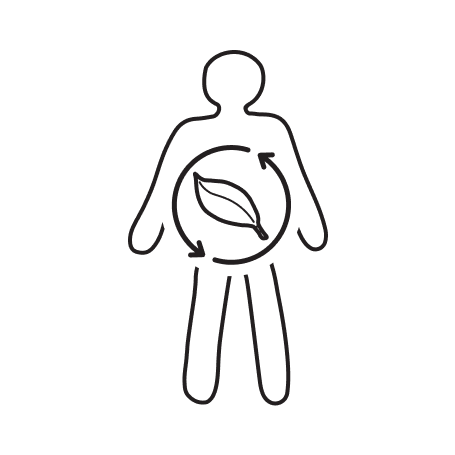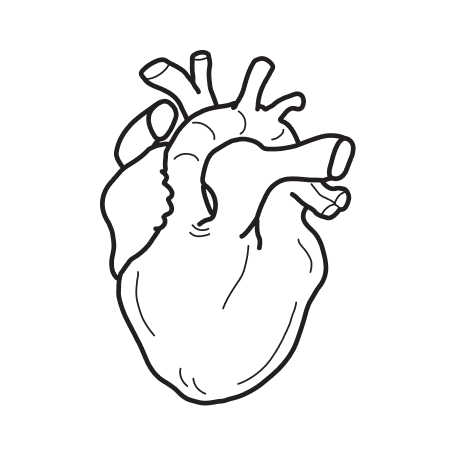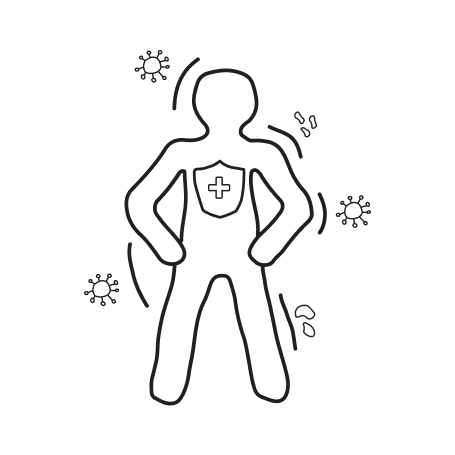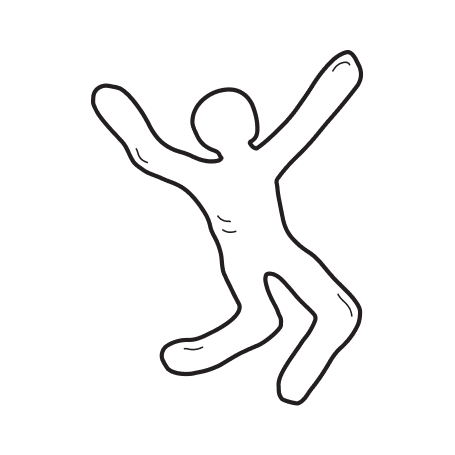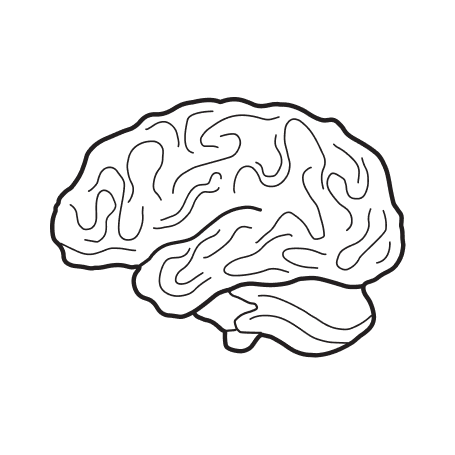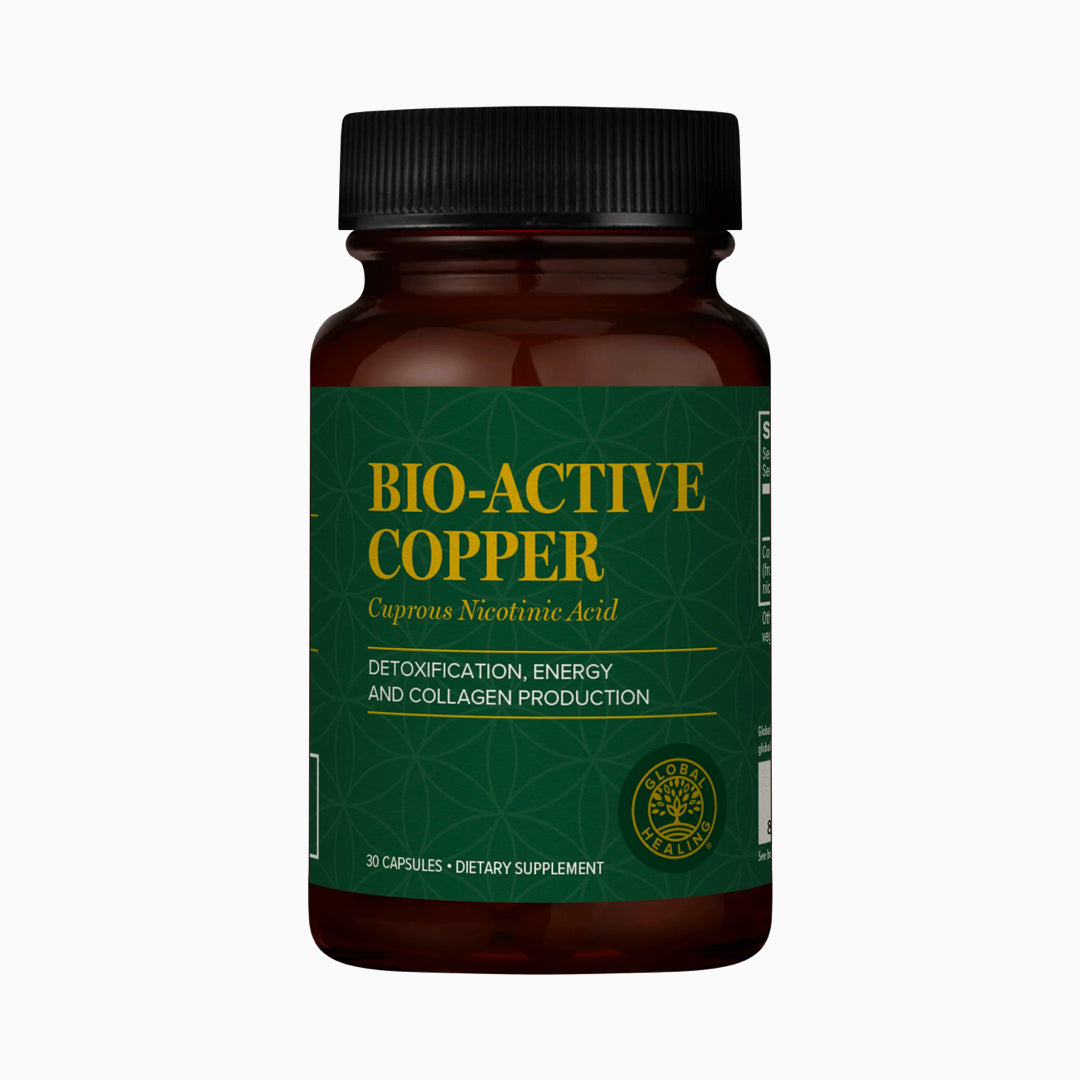
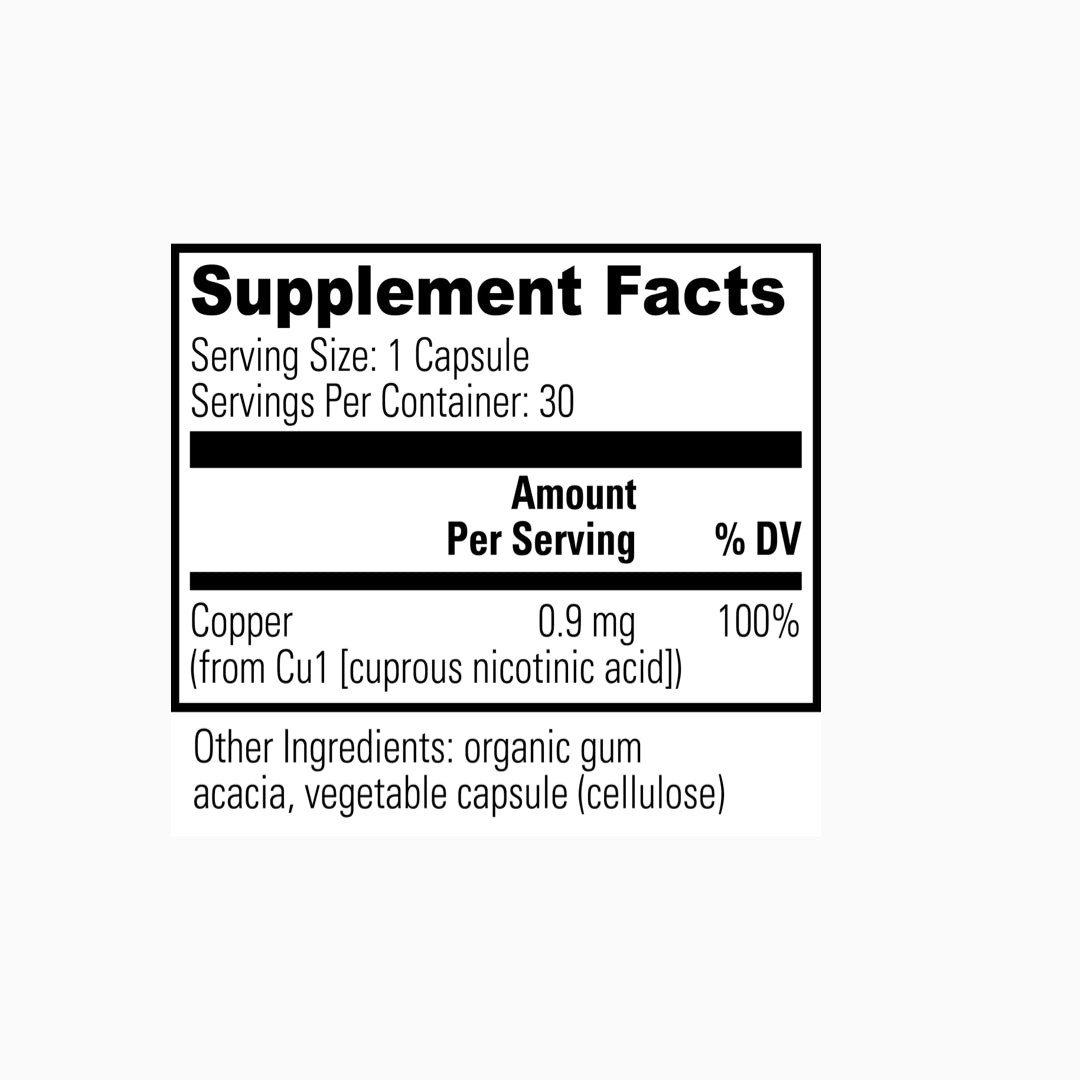
Global Healing
Bio-Active Copper
Bio-Active Copper offers highly bioavailable micro-activated Copper 1, ensuring optimal absorption and utilization by your body.
- Boosts Energy
- Supports Detoxification
- Promotes Healthy Immune System
Estimated delivery date is between December 26th and December 28th
Reviews
Ingredients
Copper (from Cul [cuprous nicotinic acid]) organic gum acacia, vegetable capsule (cellulose)
How to Use
Who's this for?
Individuals who are passionately striving to enhance their holistic health, elevate their well-being, and foster a lifestyle that balances physical, mental, and overall wellness in a sustainable manner.

How Bio-Active Copper Leads to a Better You
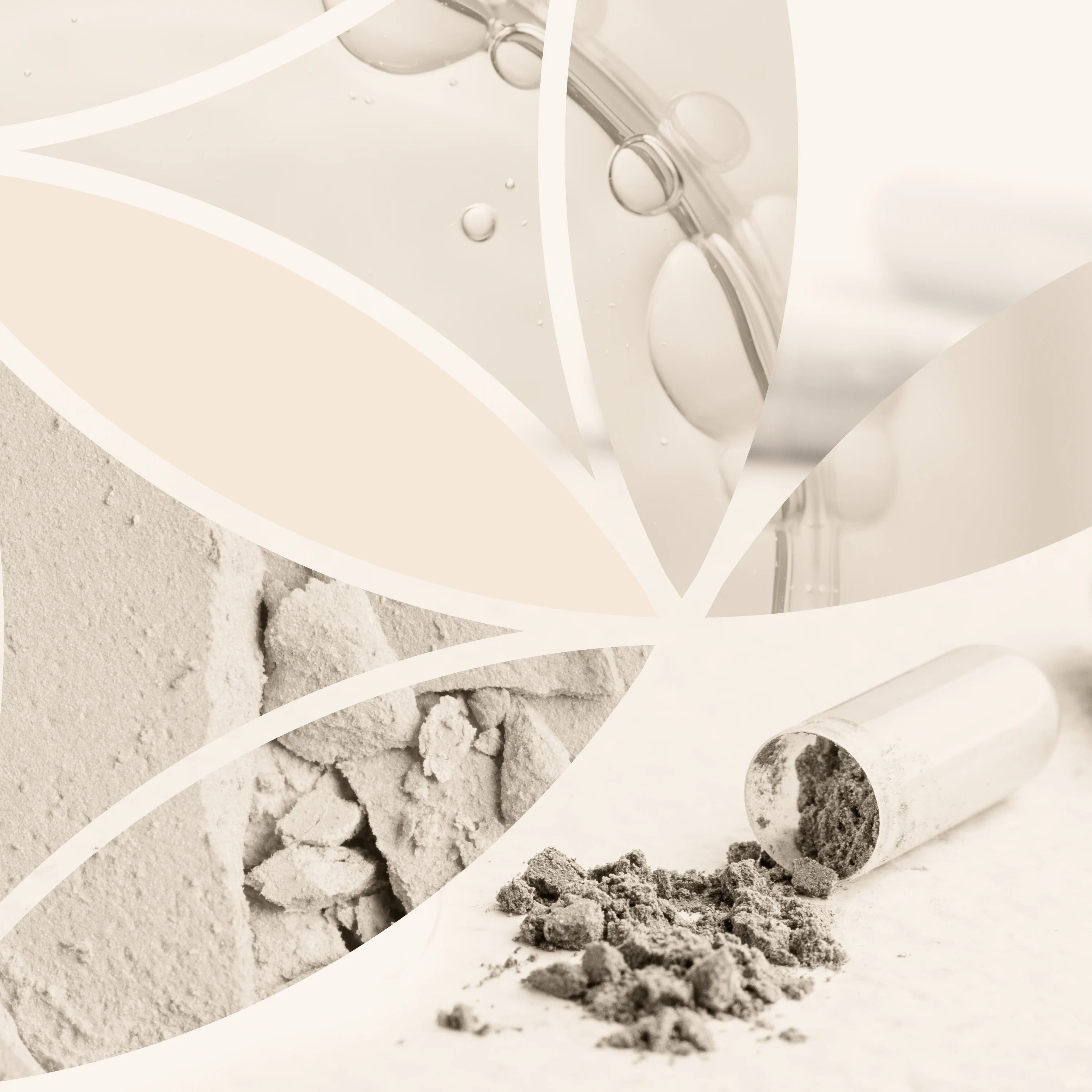
What Is Bio-Active Copper?
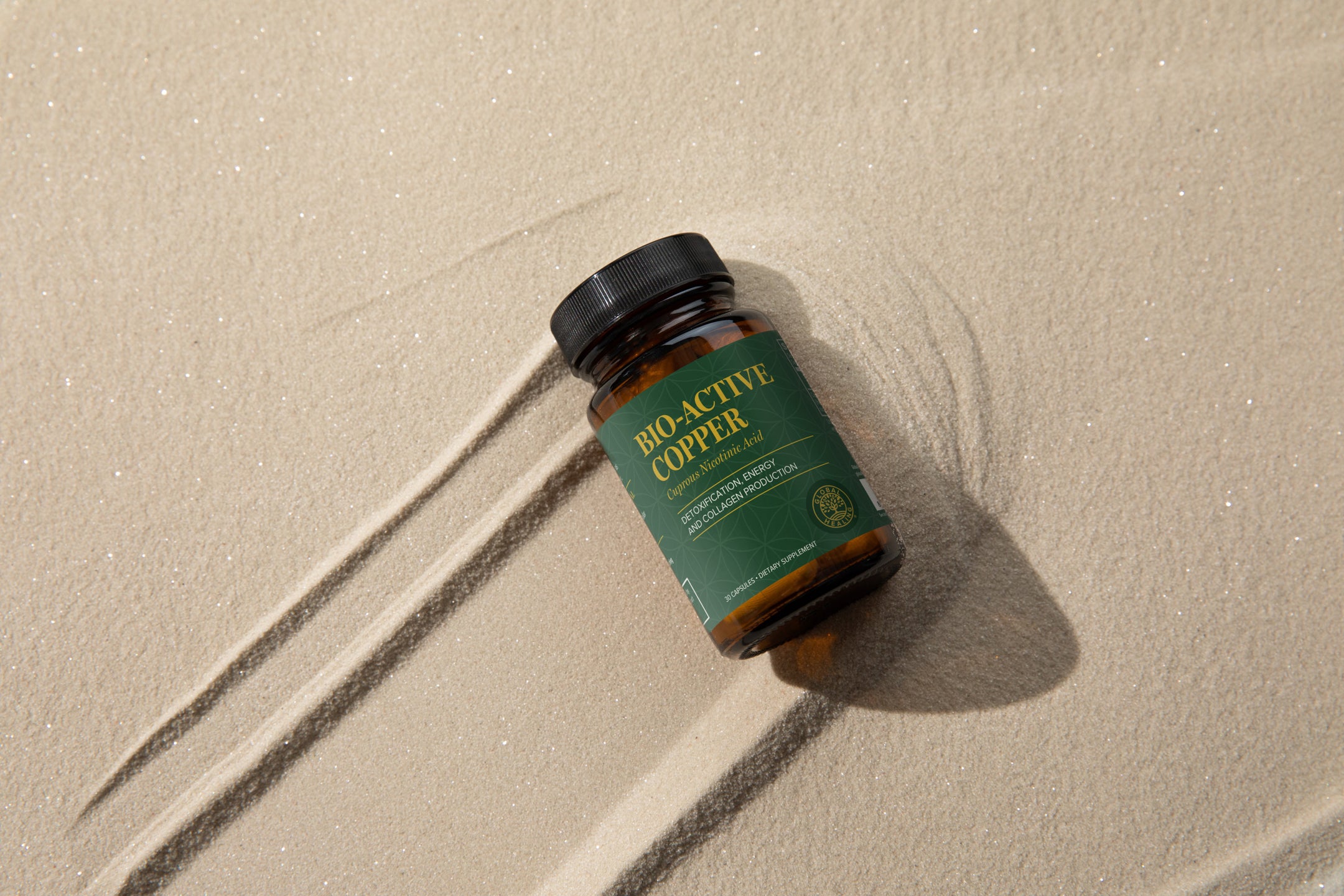
Bio-Active Copper: The Key to an Enhanced You
F.A.Q.
Your Questions about Bio-Active Copper answered
Trying a new supplement may seem daunting, but we're here to offer our support and guidance as you initiate this healthy transformation.

Is 0.9mg a total of cuprous nicotinic acid (copper niacin) or actual copper?
What is displayed on the product label is the elemental amount of copper per serving.
How much copper is too much?
Prolonged copper intake over 10 mg per day may cause severe symptoms such as headaches, vomiting, anemia, and liver and kidney damage.
What if I miss a day taking copper, should I take two the following day?
For optimal performance, it is best to take only 1 capsule per day. If you miss one day, resume the following day with the recommended serving of 1 capsule per day.
What are the best food sources of copper?
Are vegans or vegetarians susceptible to copper deficiency?
Although copper bioavailability is slightly higher in non-vegetarian diets, concentrations of copper are higher in certain plants. Copper deficiency, unlike certain other vitamins and minerals, is not common in vegans or vegetarians.
Can copper be taken with other minerals such as iron, calcium, magnesium, iodine, or zinc?
It is best to take Cu1 copper at different times because it can interfere with the absorption of other minerals. Zinc can also interfere with Copper absorption, therefore it is best to take Zinc at least 2-3 hours after taking Copper.
Does copper have to be taken with meals?
No. In fact, it is recommended to take copper on an empty stomach (at least 2 hours before or after a meal) or as recommended by your healthcare provider.
Can copper be taken with Vitamin C?
Copper should not be taken at the same time as Vitamin C because Vitamin C can interfere with Copper absorption. Take Vitamin C at least 2-3 hours after taking Copper.


